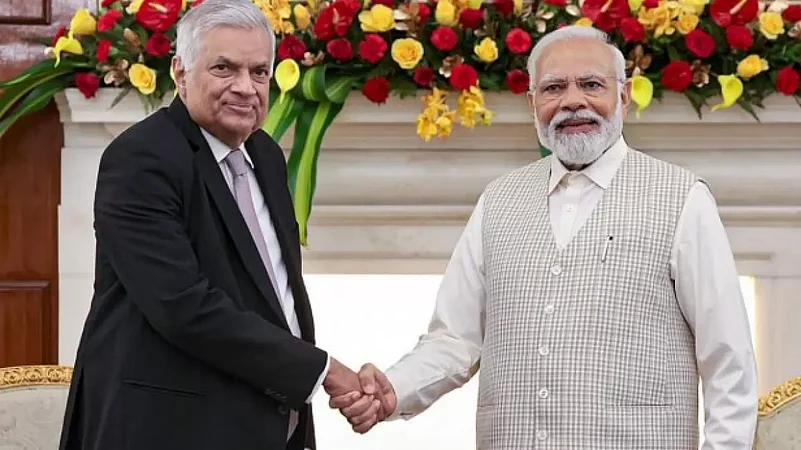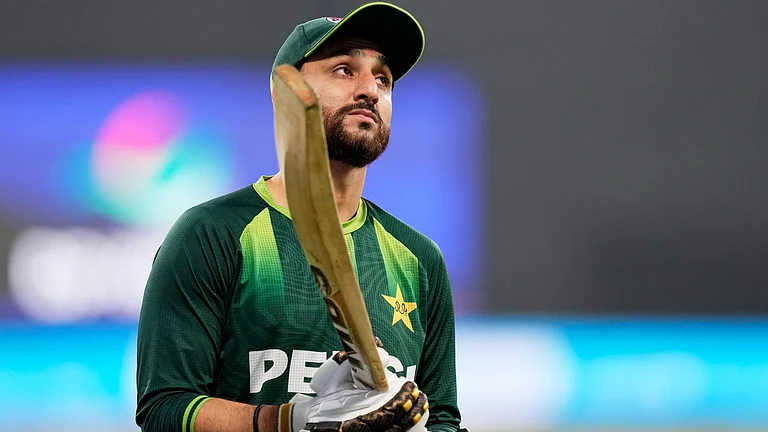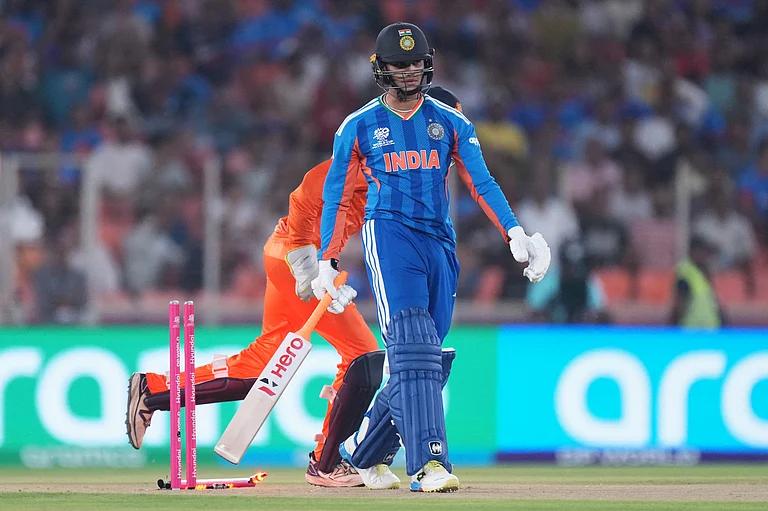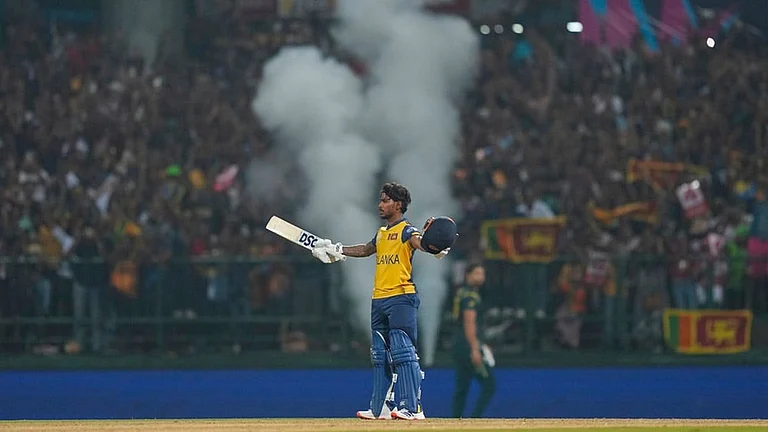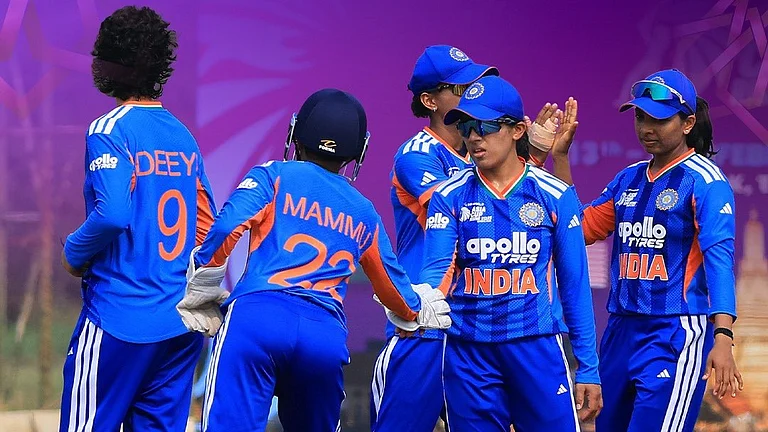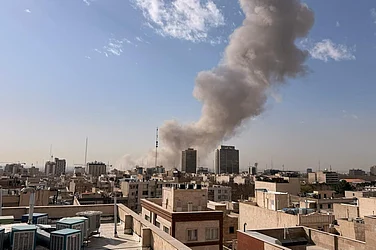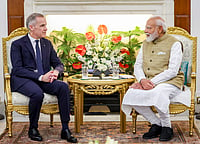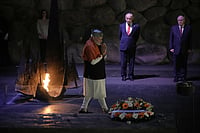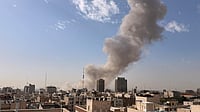India is watching this week’s presidential elections in Sri Lanka with keen interest. Change of government in the neighbourhood, especially one that is anti-India, impinges both its security and economic interests. However New Delhi has covered its ground well and has established links with all three presidential hopefuls in Sri Lanka.
It goes without saying that Ranil Wickremesinghe is regarded as the best option for India. His long political careers ensures that he is a familiar face for not just India but for most world leaders. Successive Indian governments have worked with him and since the beginning of his career, when he was a junior minister in the Jayawardene’s cabinet, he had defended the controversial India-Sri Lanka accord that triggered a near revolt in the JR Jayawardene cabinet in 1987.
During the 2022 economic crisis, India had been the first to reach out to Ranil Wickremesinghe’s government, with as much as US $4 billion in loans, swaps and aid. The government’s neighbourhood first policy came into play during the crisis that summer.
Unlike in the case of Bangladesh when both the Congress and BJP governments had solidly backed Sheikh Hasina, in Sri Lanka New Delhi has made it a point to engage with the opposition leaders as well. Presidential hopeful Sajith Premadasa has met foreign minister Subramanyam Jaishankar several times during the latter’s trip to the island nation. His recent statements on India are conciliatory. He has said he wants a "strong constructive all encompassing relations" with India that would also "maximise our national interest". He has also said that India is a strong emerging power and deserves to have a permanent seat in the UN Security Council. This remark will be much appreciated by New Delhi as it continues to fight for expanding the Security Council and getting a place on the high table. India has been working for decades to get all friendly countries at the UN General Assembly to back it. Though the final decision will be taken by the Permanent members or the P5 : Russia, US, China, France and the UK—a ground swell of support for India will help its cause.
Many in the Indian establishment will remember that his father Ranasinghe Premadasa was vehemently against the India-Sri Lanka accord and opposed it tooth and nail. Later as President, Premadasa made a deal with the LTTE chief and ordered the Indian Peace Keeping Force out of the northern and eastern provinces of the country.
Yet that was a long time ago and circumstances today are very different. India’s economic heft as the largest economy in South Asia makes it imperative for immediate neighbours like Sri Lanka to have good relations with New Delhi to encourage Indian investments to the island. Similarly no Asian country can ignore China, the second largest economic power in the world. A balance between India and China is what most neighbouring countries aim to achieve. Sheikh Hasina and Ranil Wickremesinghe both perfected the balancing act.
Both Sajith Premadasa and Wickremesinghe are products of the United National Party and come from the same political stable. The new bee is Anura Dissanayake of the National People’s Power (NPP) the political face of the Janatha Vimukhti Peramuna (JVP). The JVP was a extreme Left yet ultra nationalist outfit that believed in violent insurrection to capture power. Its charismatic leader Rohana Wijeweera, was a young revolutionary when he organised the attacks on police stations and government offices in 1971. Sirimavo Bandaranaike who was then the prime minister managed to easily crush the militants, as the early JVP were both poorly armed and badly organised. Indira Gandhi backed the government and supported Bandaranaike’s decision.
But the next JVP uprising from 1987 to 1989 was much more impactful. Wijeweera was this time better organised and brought to the country almost to a halt. The movement lasted two years. The UNP then in power crushed it ruthlessly and rounded off killed and jailed villagers suspected of supporting the insurrection. Human rights abuse by the police and the crack police unites of the STF was rampant. Bonfires of dead bodies were left on village squares to remind villagers of what could happen to them if they supporter the insurrection. Innocents were butchered by the police and the army. The JVP matched the government’s atrocities killed anyone suspected of siding with the state. Finally Rohana was captured, tortured and killed in prison in 1991.
JVP was also known for its hostility towards India. Wijeweera ordered the boycott of Indian goods, Indian films and music. He naturally opposed the accord and regarded New Delhi as a powerful bully bent on undermining Sri Lanka’s national interest. JVP at one time looked to China and is said to have received funds from Beijing. But much has changed from those early days. The JVP is as critical of China’s Belt and Road Investments in the country today as it is with what it claims is India’s capture of its energy sector.
After the killing of Rohana Wijeweera the JVP was disseminated. But it gradually got its act together, shed its violent image and decided to join the democratic mainstream. It revamped itself and formed the National People’s Power in 2015. The party did poorly both in the 2019 presidential elections as well as 2020 parliamentary polls. The NPP won just three seats in parliament. But the anti-government movement in 2022, resurrected its political profile. The JVP was the behind the scenes organiser and gained enormous good will from the general public. Since then the political fortunes of their leader Anura Dissanayake has shot up and there is the possibility of him becoming the next president of the country.
India is well aware of the changing momentum in Sri Lanka. New Delhi invited Dissanayake for a five-day visit to India this February. He and his NPP delegation was given the red carpet treatment during their stay. He not only met foreign minister Subramanyam Jaishankar but also NSA Ajit Doval. A visit to Tata Motors, the headquarters of Amul cooperative in Gujarat and key agricultural and industrial hubs.
Soon after his India visit, Dissanayake said that India should have the first call on tenders for major infrastructure projects in Sri Lanka. However recently Dissanayake has publicly proclaimed that the Adani groups controversial wind projects in the northern province would be reviewed and cancelled by his government if he were to be elected. The Adani wind power project had generated much criticism in Colombo.
The NPP is now being taken seriously both inside and outside Sri Lanka. Dissanayake has been hosted not just by the Indian government but by China as well. He has visited South Korea, as well as the US and Australia. The last two countries have sizeable Sri Lankan ’s settlers.
India is confident that whoever wins the elections will not turn against India. The MEA has spent considerable time and energy in covering all the flanks, yet the best laid plans can go awry.



